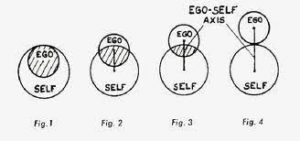Only Fools Rush In
The phrase “speaking truth to power” originated from a pamphlet, Speak Truth to Power: a Quaker Search for an Alternative to Violence, published by the American Friends Service Committee in 1955. The pamphlet promoted love over hate, and preferred peace to the rising tensions of the Cold War.[1] James O’Toole adapts this phrases and ethos for organizational leadership in his essay Speaking Truth to Power: A White Paper. As I write this, protests continue throughout China after a fire killed more than 10 people who were confined in their homes due to the authoritarian government’s mandated zero-tolerance Covid restrictions. Since the fire white sheets of paper became a symbol of defiance, and in one case, a group of university students in Beijing wrote a math equation devised by Russian physicist Alexander Friedmann, whose surname in Chinese sounds like “free man.”[2] This symbol is an image of mourning, of government suppression, and creative, even humorous critique of a regime that crushes dissent.
Referring to organizational life, O’Toole writes, “companies get into moral and competitive hot water when their leaders are unwilling to test their operating premises about such subjects as […] [their] nature […] [their] purpose, […] and [their] responsibilities.”[3] The same applies to countries, political movements, and religious organizations. When leaders become insulated from critique, O’Toole proposes the archetype of the fool as medicine for such a system. In an episode of the podcast This Jungian Life titled the archetype of the fool is defined as that which “{…] punctures the posturing of others’ personas and egos, bests his “betters,” and transgresses social boundaries and conventional morality. The fools flaunts and taunts us with shadow, making truths about cultural norms and human complexity both pointed and palatable.”[4] O’Toole elevates Shakespeare who imaged this archetypal force through his works. It is the fool who is to “challenge by jest and conundrum, all that is sacred and all that the savants have proved to be true and immutable.”[5]
O’Toole emphasizes this point in his reflections of lessons learned in his time work with FedEx. From day-one, FedEx had a culture of “constructive dissent” where lower and mid-level leaders could openly critique decisions made by top-level leadership. It was a culture that, according to O’Toole, allowed FedEx to adapt and grow throughout decades global change.
This interplay between the egoic attitude of organizational leadership and the archetype of the fool is paralleled by what Jungian analyst and author Edward Edinger called the Ego-Self axis (see below image):
This image is a distilled representation of the developmental process from birth, where there is no distinction between ego and self (left side), all the way to individuation, where the ego and Self are differentiated yet in relationship (right side). The archetype and role of the fool allows the egoic leader or institution to remain in relationship with its broader and more expansive unconscious and/or shadowed side. Without it, group think becomes tacitly synonymous with reality, truth, and God’s will. The archetype of the fool, we may say, is the very axis, access point, and canal from with the ego has access to the Self. It is the necessary tether and spacer between ego and Self.
Finally, when speaking truth to power it is important to understand where power originates. Power is not simply concentrated in a person but an ideology, that is an organization of preferred ideas and beliefs. Ideologies are structured, ridged, and codified into the human psyche, and they must be upheld at all costs. In contrast, myths are an organization of symbols that give expression to the total human experience of a given culture or period.[6] Joseph Campbell offers four functions of myth, the last of which is that “myths carry us through the various stages and crises of life, and into integrity.” Ideologies can become inflated and assume oneness with Self, or become alienated and lose touch with Self. However, myths provide the symbols that allow us to access the personal and collective shadow, which ultimately, though often painful, is the birthplace of new life. It is this sort of integrity with O’Toole proposes is needed to maintain the generative tension of loyalty and truth-telling.[7]
[1] James O’Toole, “Speak Truth to Power,” American Friends Service Committee, December 2, 2010, https://www.afsc.org/document/speak-truth-to-power.
[2] “Memes, Puns and Blank Sheets of Paper: China’s Creative Acts of Protest”, November 28, 2022, https://www.nytimes.com/2022/11/28/world/asia/china-protests-blank-sheets.html
[3] James O’Toole, Santa Clara University, “Speaking Truth to Power: A White Paper,” accessed November 29, 2022, https://www.scu.edu/ethics/focus-areas/business-ethics/resources/speaking-truth-to-power-a-white-paper/.
[4] Episode 157 – The Archetype of the Fool, 2021, https://www.youtube.com/watch?v=U2HiiYLd4Lk.
[5] O’Toole, “Speaking Truth to Power.”
[6] Joseph Campbell, Thou Art That: Transforming Religious Metaphor, ed. Eugene Kennedy (New World Library, 2013). 2.
[7] O’Toole, “Speaking Truth to Power.”
8 responses to “Only Fools Rush In”
Leave a Reply
You must be logged in to post a comment.



Michael, excellent blog. Have you considered teaching? If not, you really should… the way you think about and teach principles is very insightful and thought-provoking.
Power is not in a person but an ideology. Can yo u say more about this?
You’re too kind Eric. I hadn’t though much about it until doing this program. My project kinda pointed me towards teaching, and I found that may natural state of communication is more of a teaching voice. Anyway, I receive that!
Michael, thanks for this deep post. You truly went beyond the reading to give some important background insights to the hidden motivations that often drive the visible behaviors we see. You write about ideology and mythology. Do you see those two as mutually exclusive or is there overlap? What benefits do you see mythology providing for some of the divisive social issue of this day?
Good question Roy. I don’t think they’re mutually exclusive, but I think they are quite distinct. Unfortunately, the imaginary dividing line is quite grey. I feel myths are made up of symbols that help us transcend and transform, whereas ideologies are made up of facts that affirm the status quo. Now, both are necessary, this is the law of the tension of opposites. But I think we get into trouble when we assume our symbols as facts, and make an ideology out of our mythology. I think this is exactly where Evangelicalism has gotten. Christ is no longer the transcendent water of life, but a factual concrete slab. What are your thoughts?
Michael,
Thank you for explaining the connection to shadow work. It was very insightful. This phrase, “myths provide the symbols that allow us to access the personal and collective shadow, which ultimately, though often painful, is the birthplace of new life.” Is particularly powerful and enlightening. It really speaks to rigidity of organizations. Thank you. Have you been able to apply this successfully within your context?
Thanks Denise! I’ve certainly tried. I can think of a few times I’ve applied or been part of organizations where symbolic thinking and shadow work has taken place on a collective level. It always provides transformational energy, but it’s also always met with pushback. The organization is rarely transformed long term, but people are transformed.
What resonates about it with you? Have you seen this in organizations you’ve been a part of?
Michael, O’Toole suggests that women are in a better place to play the “jester” role. What does that say about women in relation to their abilities to live more adeptly in the individuation of ego and self?
Michael: Thanks for the further dive into shadow work and the ego. I’m interested to know in going through the IDI, if you see any connections to that assessment tool as it is attempting to help people understand and see a different perspective of themselves and their own perceptions.